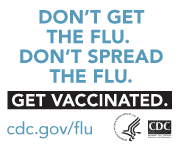Community-Associated Methicillin Resistant Staphylococcus aureus (CA-MRSA)
National Campaign to
Prevent MRSA Skin Infections
Overview of Community-Associated MRSA
Methicillin-resistant Staphylococcus Aureus (MRSA) is a type of staph that is resistant to certain antibiotics. These antibiotics include methicillin and other more common antibiotics such as oxacillin, penicillin and amoxicillin. Staph infections, including MRSA, occur most frequently among persons in hospitals and healthcare facilities (such as nursing homes and dialysis centers) who have weakened immune systems (see healthcare-associated MRSA).
MRSA infections that are acquired by persons who have not been recently (within the past year) hospitalized or had a medical procedure (such as dialysis, surgery, catheters) are known as CA-MRSA infections. Staph or MRSA infections in the community are usually manifested as skin infections, such as pimples and boils, and occur in otherwise healthy people.
Background/General Information
- Environmental Management of Staph and MRSA in Community Settings 2008
- Podcast: Key fact about MRSA
Date Released: 10/23/2007, Running time 4:57 - Fact Sheet: Invasive MRSA 2007
- CA-MRSA Information for the Public
- CA-MRSA Information for Clinicians
- What Is CDC Doing about MRSA?
- Questions and Answers about MRSA in Schools
Educational Materials
![]() Please note: Some of these publications are available for download only as *.pdf files. These files require Adobe Acrobat Reader in order to be viewed. Please review the information on downloading and using Acrobat Reader software.
Please note: Some of these publications are available for download only as *.pdf files. These files require Adobe Acrobat Reader in order to be viewed. Please review the information on downloading and using Acrobat Reader software.
Date last modified: Oct 8, 2008
Content source:
Division of Healthcare Quality Promotion (DHQP)
National Center for Preparedness, Detection, and Control of Infectious Diseases (NCPDCID)
Infection Control Topics
- Infection Control Home
- Healthcare-Associated Infections
- Protecting Patients
- Protecting Healthcare Workers
- Infection Control Guidelines
- Infection Control A-Z
- About DHQP
Related CDC Resources
- CDC and Prevention Experts' 2004 Meeting Summary
- Healthcare-Associated MRSA
- CDC's Primary Antimicrobial Resistance Page
Related Guidelines
- Management of Multidrug-Resistant Organisms in Healthcare Settings, 2006
PDF 235KB / 73 pages - Hand Hygiene in Healthcare Settings - 2002
- Isolation Precaution 2007

